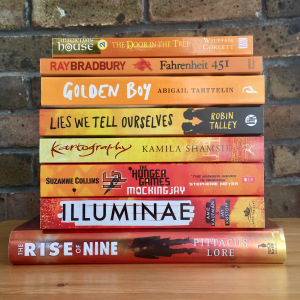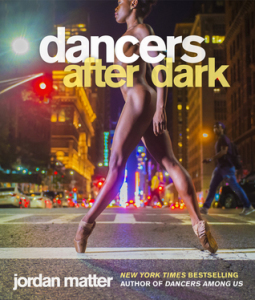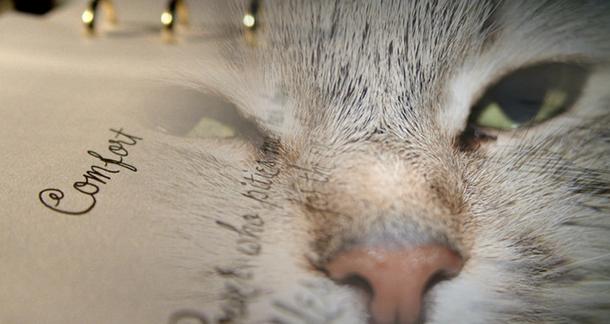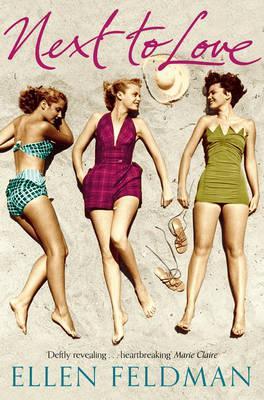On Monday 11th December 2017, short fiction writer Diane Williams visited the University of Westminster to give a reading and to talk about her writing processes in conversation with novelist Toby Litt. The evening was introduced by Leigh Wilson from the University of Westminster’s Institute of Modern and Contemporary Culture. Diane Williams then read from selected collections of her fiction, including Fine, Fine, Fine, Fine, Fine, published in the UK in 2016 by CB editions.
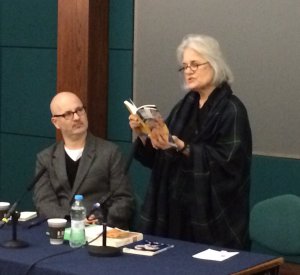 Diane Williams reading from Fine, Fine, Fine, Fine, Fine, with Toby Litt. University of Westminster, 11 December 2017
Diane Williams reading from Fine, Fine, Fine, Fine, Fine, with Toby Litt. University of Westminster, 11 December 2017
In the ensuing conversation, Williams spoke candidly about her writing and her writing processes, in response to Litt’s insightful comments and questions. Williams’ short stories are minuscule fragments of strangely unsettling and wittily observed realism, always with an uncanny and unnerving twist that leaves them open and on the verge of beginning anew just at the point at which they ought to offer the closure of an ending. Her short form fictions range from a few sentences to two or three pages, and their brevity is part of their crystalline form, giving them the precision and density of poetry. On this ultra-short-form, Williams remarks that, ‘I work to my skills … Six pages feels like a saga to me,’ insisting that her writing is about ‘writing what you can, writing “my way” rather than anybody else’s way… not trying to fit a particular literary genre’. This ensures, she says, that your writing is your own, its distinctive rather than imitative.
‘Writing to fracture what I knew, to open up new perspectives.’
Part of what makes Williams’ short fictions so fragmentary and unsettling, however, might be her sense that she is ‘writing to fracture what I knew, to open up new perspectives.’ For Williams ‘[my] stories issue from a sense of pain or fright or bewilderment, of not feeling like I belonged in my own house’. It is that sense of the uncanny that carries over into the bewildering realism of her works. Toby Litt commented on how that is implemented formally in Williams’ writing, saying: ‘Diane Williams’ sentences are bendy: they don’t go where you expect them to’. At the level of the sentence, Williams admits that, ‘So much of my writing is reorganising the connections between sentences. … To keep a lively pace, I don’t want to get bored’. The emphasis here is on re-writing, the vital importance of redrafting, restructuring and reshaping the words down to the finest detail of the connections between sentences to maintain pace, interest and innovation. To continually shift expectations and ‘fracture what [we] knew’.
As a final thought, Williams added: ‘My theory is that one ought to be able to say anything about anything’ in literature. ‘I have to pretend to be bold’. Diane Williams demonstrates this theory again and again in her fiction, embodying a pulsing, fleshy eroticism of both form and content in her intense rhythms and choice of subjects. In addition to Fine, Fine, Fine, Fine, Fine, Williams read from her 1992 collection Some Sexual Success Stories, which she has been editing for her forthcoming collected works. If you’re not already familiar with Williams’ writing, now is a great time to get to know her through her books.
Thanks to Diane Williams, Toby Litt, Charles Boyle, and everyone who came to this illuminating event at the University of Westminster.
Diane Williams has been publishing her wholly distinctive short fiction in the US for the past quarter of a century. She is the author of eight books, including a collection of her selected stories, and is the founder and editor of the literary annual NOON. Her most recent book, Fine, Fine, Fine, Fine, Fine was published by CB editions in 2016 and is the first UK publication of her new book of stories.
Toby Litt is the author of five books of short stories and ten novels. His new novel, Notes for a Young Gentleman, will be published by Seagull Press in December. Toby’s most recent book is Mutants: Selected Essays, also published by Seagull. Toby teaches creative writing at Birkbeck College. He blogs about writing at www.tobylitt.com.
Share this: